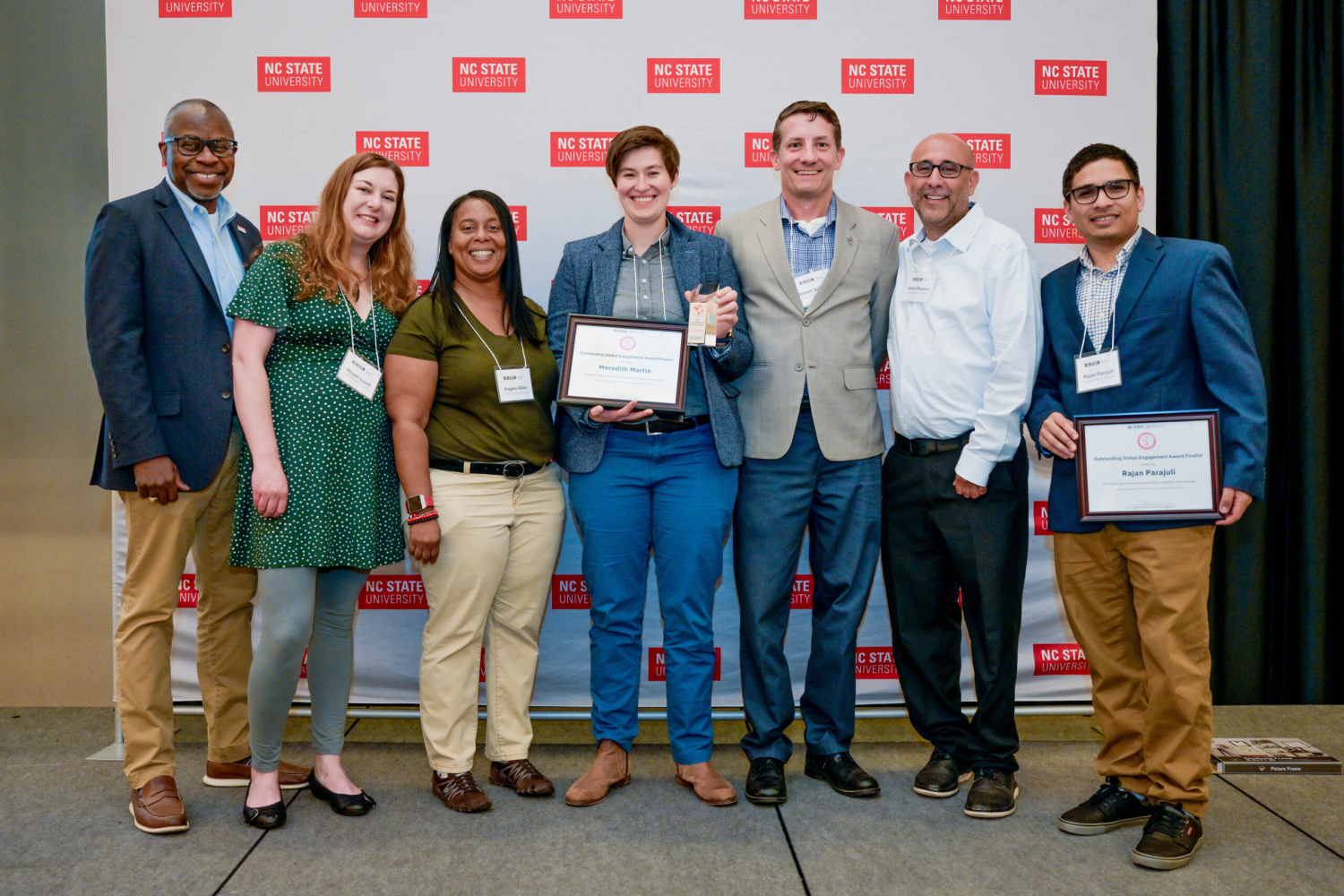Out of harm’s way

and Engineering Command, presents the U.S. Army Commander’s
Award for Public Service to Dr. Steer. (Photo: Rebecca Kirkland)
Dr. Michael Steer, Lampe Professor of Electrical and Computer Engineering at North Carolina State University, received the U.S. Army Commander’s Award for Public Service in a ceremony held on March 11. Steer received the honor for research that has helped American forces remotely counter roadside bombs, efforts that have saved hundreds of soldiers’ lives in Iraq and Afghanistan.
The award is the fourth highest civilian award given by the U.S. Army.
Maj. Gen. Nick Justice, commanding general of the Army’s Research, Development and Engineering Command, presented the award to Steer. Prior to the ceremony, General Justice visited Steer’s research lab to see first hand the work that has resulted in greater safety for troops in combat areas.
Steer’s research in the area began with a plan to illuminate electronic communications devices such as mobile phones with electromagnetic energy and measuring the subsequent response, efforts he likened to a real-world version of “tricorder” scanning device used by characters in the “Star Trek” film and television series. Through these measurements, which were conducted remotely, he was able learn much about the devices, including information about their components and circuits.
Steer’s work, funded by the Army, was eventually extended to applications in electronic warfare and countering improvised explosive devices (IEDs), commonly referred to as roadside bombs, that have killed U.S. soldiers in Iraq and Afghanistan. The work helped the Army learn how these explosive devices worked.
The Army honored Steer not only for his research, but also for his efforts communicating the work to Army scientists and engineers and pushing the research results from the laboratory into the battlefield. His work has also produced more than 100 journal articles and conference papers and provided research funding for 30 faculty members, students and post-doctoral researchers.
Steer has previously been honored with NC State’s Alcoa Foundation Distinguished Engineering Research Award, the U.S. Army Research Bronze Medallion for Outstanding Scientific Accomplishment, and the Presidential Young Investigator Award. He received his bachelor’s and Ph.D. degrees from the University of Queensland in Brisbane, Australia, in 1976 and 1983, respectively. He joined the NC State faculty in 1983.
- Categories:


